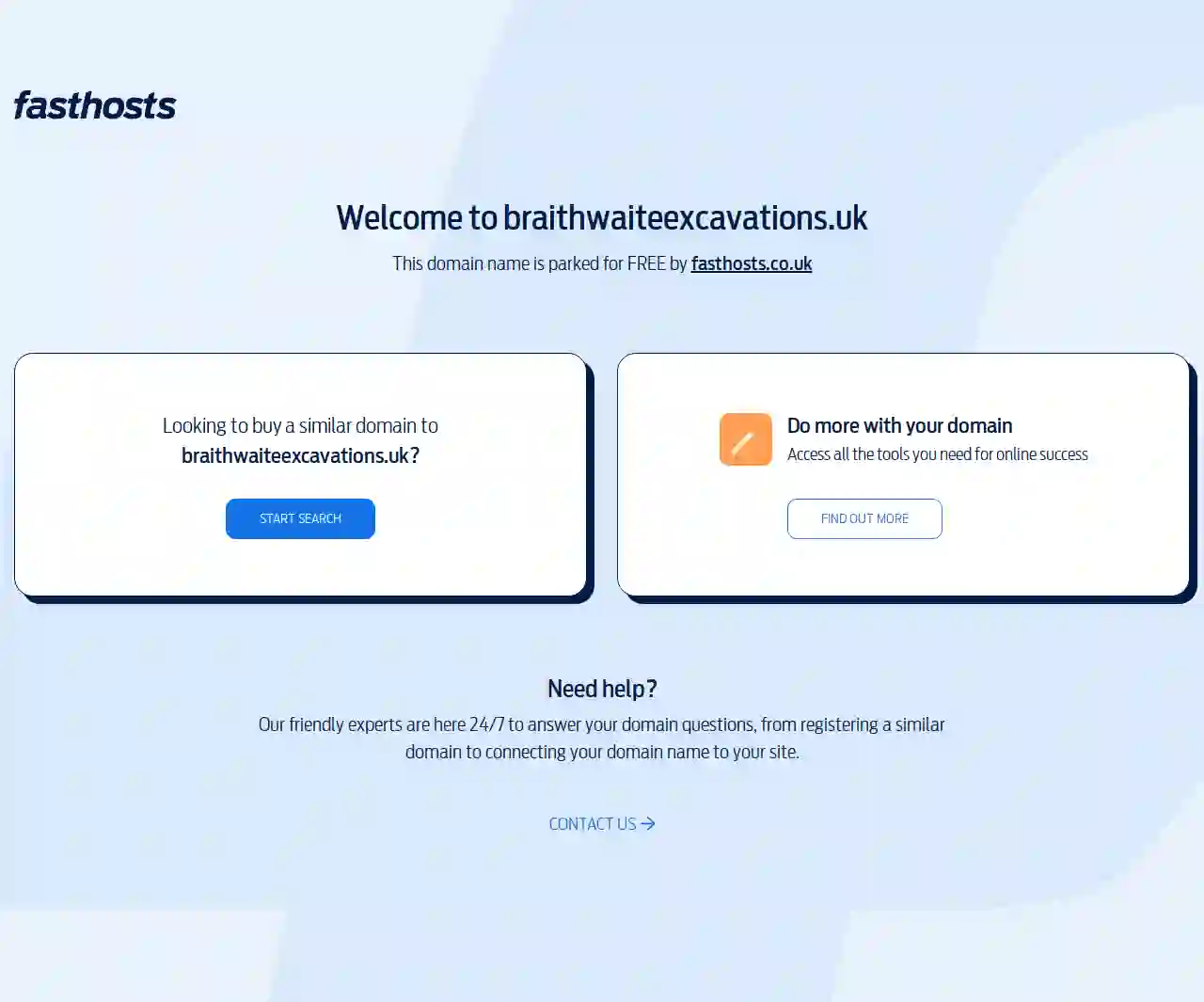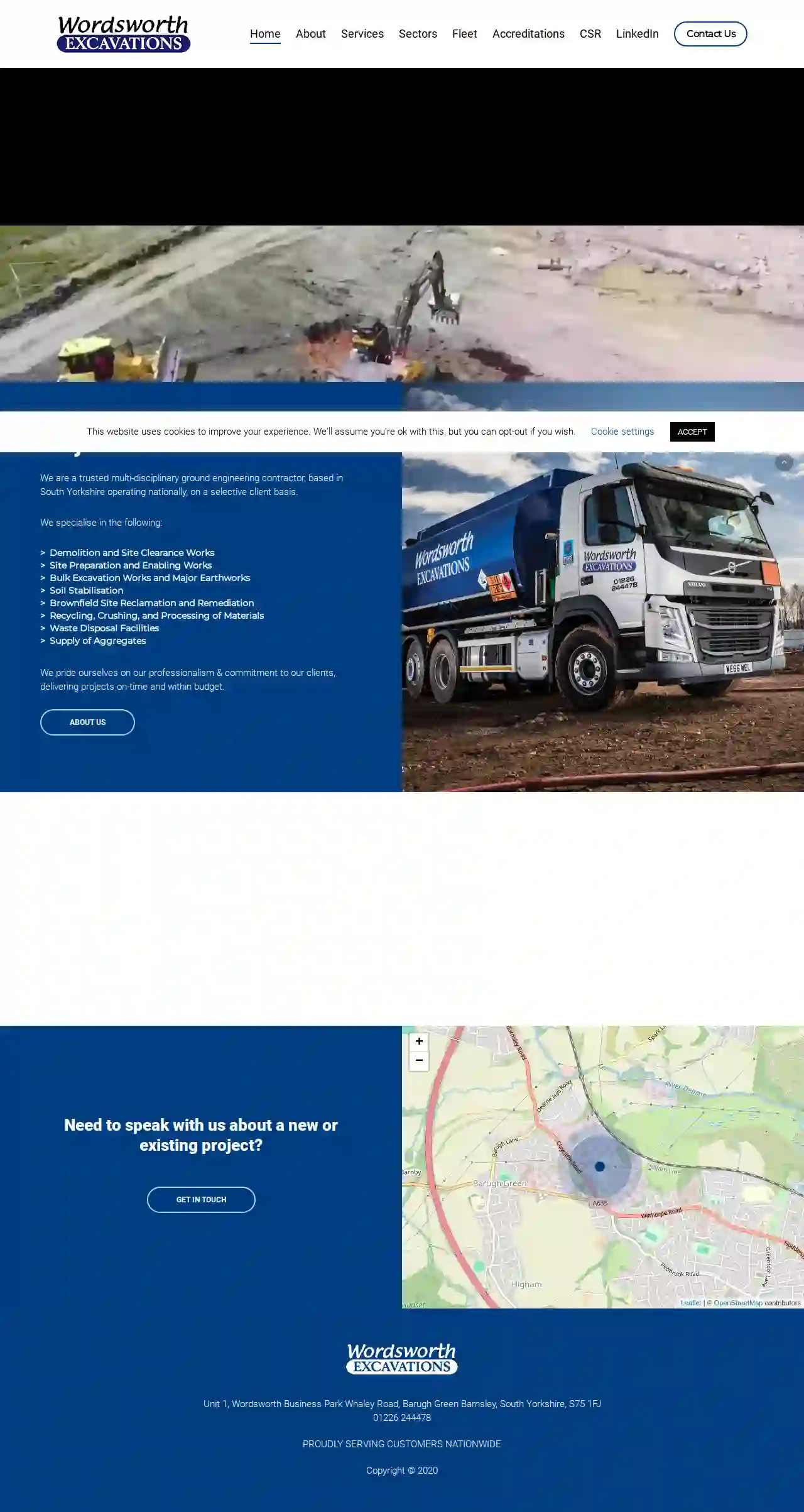Excavation Contractors Bolton upon Dearne
Find the best Excavation Contractor in Bolton upon Dearne
Receive 3 FREE Land Excavation quotes for your project today! Compare profiles, reviews, accreditations, portfolio, etc... and choose the best offer.

Kt Excavations Ltd
51 reviewsUnit 71, Albion Road, Carlton Ind Est, Carlton, Barnsley, S71 3HW, GBFrom Ground Up, We're Your Trusted Partner. Professional Excavations & Groundwork Services in Barnsley Welcome to KT Excavations, your dedicated partners in bringing your projects to life. With many years of industry experience, we've honed our craft to deliver unparalleled quality, precision, and reliability. We have a strong team of skilled professionals who will work with you from site preparation to foundation laying, and so much more. Our comprehensive suite of services is tailored to meet the unique needs of each project, ensuring optimal results every step of the way. Whether you're a homeowner embarking on a residential construction project or a commercial developer undertaking a large-scale endeavor, we will deliver exceptional results that stand the test of time.
- Services
- Why Us?
- Testimonials
- Gallery
Get Quote
Braithwaite Excavations & Demolitions Ltd
3.73 reviewsBarnsley, GBThis domain name is parked for FREE by fasthosts.co.uk. Looking to buy a similar domain? Start search. Do more with your domain. Access all the tools you need for online success. Find out more. Need help? Our friendly experts are here 24/7 to answer your domain questions, from registering a similar domain to connecting your domain name to your site. Contact us.
- Services
- Why Us?
- Gallery
Get Quote
Wordsworth Excavations
3.919 reviewsBarnsley, GB- Services
- Why Us?
Get Quote- Ba
Barrett Excavation Ltd
56 reviewsBarnsley, GB- Services
- Why Us?
Get Quote - G.
G.A.Siddons
4.25 reviewsBarnsley, GB- Services
- Why Us?
Get Quote 
Jakto Transport Ltd - Excavations, Demolitions and Groundworks
4.814 reviewsBarnsley, GB- Services
- Why Us?
Get Quote- Og
Ogdens Excavation Ltd
52 reviewsBarnsley, GB- Services
- Why Us?
Get Quote - Ee
Eezi Dig Groundworks & Excavations
51 reviewsBarnsley, GB- Services
- Why Us?
Get Quote
Over 13,059+ Excavation Businesses on our directory
Our excavation experts operate in Bolton upon Dearne & surroundings!
ExcavationHQ has curated and vetted the Best Excavation Pros near Bolton upon Dearne. Find a trustworthy business today.
Frequently Asked Questions About Excavation Contractors
- Trench Collapses: Unstable trench walls can cave in, posing a severe risk to workers. Proper shoring and sloping are crucial safety measures.
- Utility Damage: Striking underground utilities (gas, water, electric) can cause leaks, explosions, or electrocution. Accurate utility locates and careful digging are essential.
- Falling Objects: Materials or equipment falling into excavations can injure workers. Securing work areas and using appropriate safety gear is vital.
- Equipment Accidents: Operating heavy machinery involves risks of rollovers, collisions, or mechanical failures. Trained operators and proper equipment maintenance are critical.
- Environmental Hazards: Excavated soil might contain hazardous materials (asbestos, lead). Proper testing and disposal procedures are necessary.
- Project Size and Scope: Larger, more complex excavations naturally take longer.
- Soil Conditions: Rocky or challenging soil types can slow down progress.
- Site Accessibility: Limited access might require more time for maneuvering equipment and hauling materials.
- Weather: Inclement weather can cause delays.
- Permitting and Inspections: Waiting for permits or inspections can extend the timeline.
- Excavators: Versatile machines with a bucket, arm, and rotating cab for digging, lifting, and moving earth.
- Backhoes: Similar to excavators but with a digging bucket on the back and a loader bucket on the front, ideal for trenching and smaller excavations.
- Bulldozers: Powerful machines with a large blade for pushing earth, clearing land, and leveling surfaces.
- Skid Steers: Compact and maneuverable loaders with various attachments (buckets, forks) for digging, loading, and grading in tight spaces.
- Trenchers: Specialized machines for digging narrow trenches for utilities.
- Dump Trucks: Vehicles for hauling excavated material to disposal sites.
- Basement Size: The larger the basement, the more excavation is required, increasing the cost.
- Soil Type: Excavating rocky or dense clay soil is generally more expensive than loose soil.
- Accessibility: Difficult-to-access sites might require specialized equipment or more labor, driving up costs.
- Foundation Type: The chosen foundation type (full basement, crawl space, slab) affects excavation needs.
- Underpinning: If underpinning (strengthening existing foundations) is necessary, it significantly increases costs.
- Disposal Fees: Hauling excavated soil to disposal sites adds to the overall expense.
What are the risks associated with excavation?
How long does an excavation project take?
What equipment is used for excavation?
How much does it cost to excavate a basement?
What are the risks associated with excavation?
- Trench Collapses: Unstable trench walls can cave in, posing a severe risk to workers. Proper shoring and sloping are crucial safety measures.
- Utility Damage: Striking underground utilities (gas, water, electric) can cause leaks, explosions, or electrocution. Accurate utility locates and careful digging are essential.
- Falling Objects: Materials or equipment falling into excavations can injure workers. Securing work areas and using appropriate safety gear is vital.
- Equipment Accidents: Operating heavy machinery involves risks of rollovers, collisions, or mechanical failures. Trained operators and proper equipment maintenance are critical.
- Environmental Hazards: Excavated soil might contain hazardous materials (asbestos, lead). Proper testing and disposal procedures are necessary.
How long does an excavation project take?
- Project Size and Scope: Larger, more complex excavations naturally take longer.
- Soil Conditions: Rocky or challenging soil types can slow down progress.
- Site Accessibility: Limited access might require more time for maneuvering equipment and hauling materials.
- Weather: Inclement weather can cause delays.
- Permitting and Inspections: Waiting for permits or inspections can extend the timeline.
What equipment is used for excavation?
- Excavators: Versatile machines with a bucket, arm, and rotating cab for digging, lifting, and moving earth.
- Backhoes: Similar to excavators but with a digging bucket on the back and a loader bucket on the front, ideal for trenching and smaller excavations.
- Bulldozers: Powerful machines with a large blade for pushing earth, clearing land, and leveling surfaces.
- Skid Steers: Compact and maneuverable loaders with various attachments (buckets, forks) for digging, loading, and grading in tight spaces.
- Trenchers: Specialized machines for digging narrow trenches for utilities.
- Dump Trucks: Vehicles for hauling excavated material to disposal sites.
How much does it cost to excavate a basement?
- Basement Size: The larger the basement, the more excavation is required, increasing the cost.
- Soil Type: Excavating rocky or dense clay soil is generally more expensive than loose soil.
- Accessibility: Difficult-to-access sites might require specialized equipment or more labor, driving up costs.
- Foundation Type: The chosen foundation type (full basement, crawl space, slab) affects excavation needs.
- Underpinning: If underpinning (strengthening existing foundations) is necessary, it significantly increases costs.
- Disposal Fees: Hauling excavated soil to disposal sites adds to the overall expense.